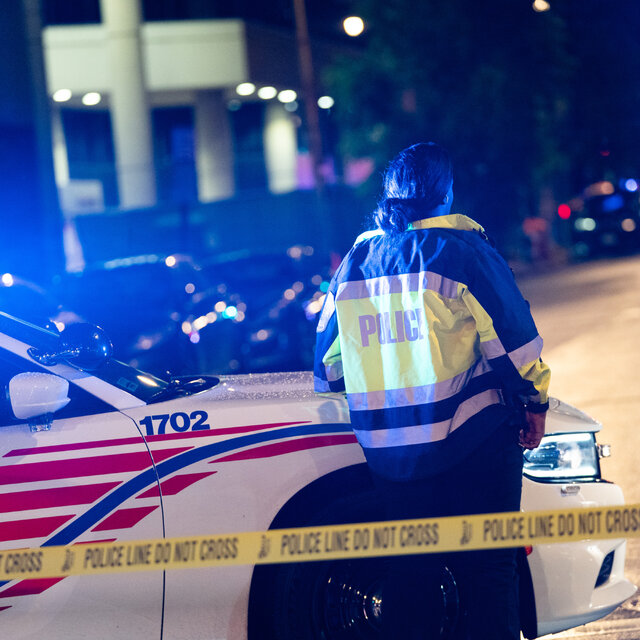
Two Israeli Embassy Staff Members Killed in Shooting Outside Washington, D.C. Museum

Tragedy at the Capital Jewish Museum Raises Questions Over Security, Extremism, and Gun Violence
On the night of Wednesday, May 21, a tragic act of violence unfolded in Washington, D.C., when two Israeli Embassy staffers were shot and killed outside the Capital Jewish Museum. The victims, 26-year-old Sarah Milgrim of Kansas and 28-year-old Yaron Lischinsky, a German-Israeli, were attending a diplomatic networking event organized by the American Jewish Committee (AJC) for Jewish professionals under the age of 45. Milgrim worked in public diplomacy at the Israeli Embassy, while Lischinsky served as a research assistant. Both were described as dedicated professionals passionate about their work and heritage.
As they exited the event in a group, the alleged shooter, identified as 30-year-old Elias Rodriguez of Chicago, reportedly pulled out a handgun and opened fire. According to authorities and video footage, Rodriguez shouted “Free Palestine” before entering the museum and being arrested by the Metropolitan Police. The shooting, which occurred at close range, is being investigated as targeted violence by the Federal Bureau of Investigation (FBI). Whether the victims were specifically selected remains unclear.
A Crime That Reverberates Through the Community
The Capital Jewish Museum, which opened in 2023, has quickly become a key cultural institution promoting Jewish history and identity in Washington, D.C. The museum recently expressed concerns over its safety, particularly amid its ongoing exhibition, LGBTQJews in the Federal City. Along with 10 other nonprofits, the museum had received a public safety grant to bolster security efforts due to increased threats. In a public statement, Executive Director Beatrice Gurwitz described the attack as a “horrifying antisemitic violence” and shared that the museum would remain closed temporarily while security is reassessed.
The institution reaffirmed its mission to continue telling the story of Jewish life in Washington and vowed to re-open soon with enhanced protective measures in place.
Political and Social Ramifications: Antisemitism, Activism, and Gun Violence
The shooter’s alleged utterance of a pro-Palestine slogan ignited swift debate online and in the media about the relationship between Palestinian solidarity and violent extremism. Right-wing commentators were quick to conflate the tragic attack with the broader Palestinian rights movement. However, data suggests otherwise: a May 2024 report from the Armed Conflict Location and Event Data Project (ACLED) indicated that student-led pro-Palestinian demonstrations across the U.S. have been overwhelmingly peaceful.
Despite that, tensions over the Israel-Gaza conflict have reached a boiling point in recent years, exacerbating divisions and escalating security concerns in diasporic Jewish communities. Since October 7, 2023, more than 50,000 Palestinians have been killed in Gaza as reported by multiple humanitarian monitoring organizations. The cycle of violence has intensified calls for peace and justice worldwide, but also triggered polarizing rhetoric.
Complicating the narrative, Rodriguez was loosely tied to the Party for Socialism and Liberation (PSL), a political organization critical of Israeli policies. PSL publicly denied any recent association with Rodriguez, stating he had a “brief involvement” in 2017. Still, conspiracy theories and politicized interpretations of the event continue to circulate widely across social platforms.
Broad Condemnation and Calls for Responsibility
Elected officials, community leaders, and activist groups across the political spectrum condemned the shootings. Even vocal critics of Israeli policy, such as Mayoral Candidate Zohran Mamdani and journalist Medhi Hasan, offered unequivocal denunciations online.
Gun reform advocacy group Moms Demand Action weighed in on the tragedy, emphasizing the lethal intersection of hate and easy firearm access: “We all deserve to live freely and safely without the threat of gun violence,” the group stated on social media.
This incident has refueled urgent debates over gun control in the United States, which continues to experience disproportionately high levels of gun-related violence compared to other developed nations.
Lives Remembered
Both victims are being mourned by their communities, friends, and colleagues. Milgrim, remembered for her “tireless devotion to building bridges,” had planned to pursue graduate studies in diplomatic communications. Lischinsky, a Christian Zionist who had served in the Israeli military, was described by Israel’s ambassador to Germany as “a proud and courageous believer in cultural diplomacy.” The American Jewish Committee released an emotional statement lamenting the loss and extending condolences to their families.
Moving Forward
This fatal incident occurred at a time when rising antisemitism, political unrest, and debate over Middle East policies intersect in volatile ways. The Capital Jewish Museum attack is not only a personal tragedy for the victims and their families—it represents a broader reckoning with the complex challenges of security, identity, activism, and justice in a deeply divided era.
As the FBI and local authorities push forward with their investigation, communities are left grappling with both grief and critical questions about how society can prevent hate-f